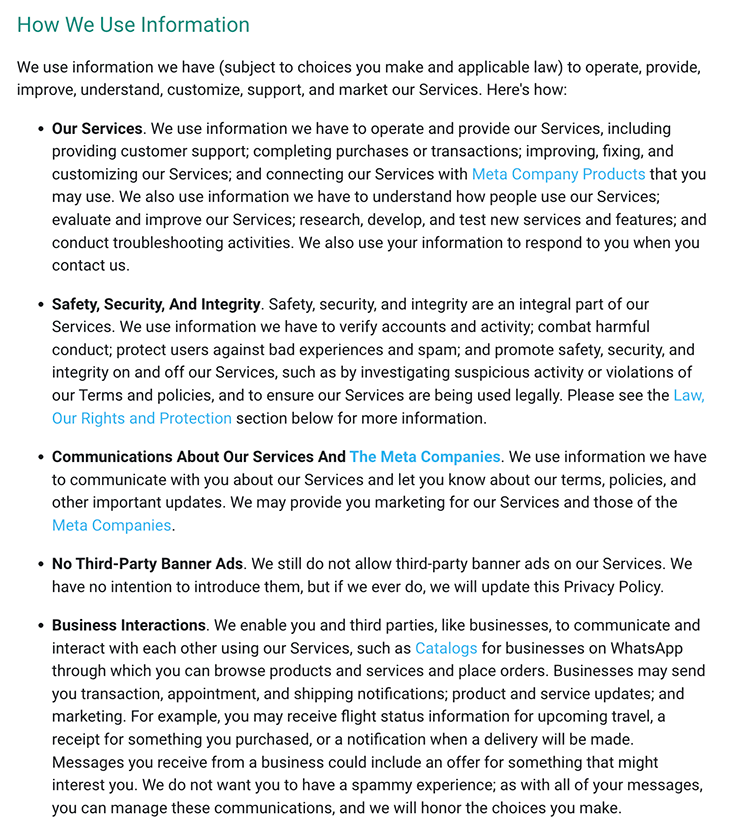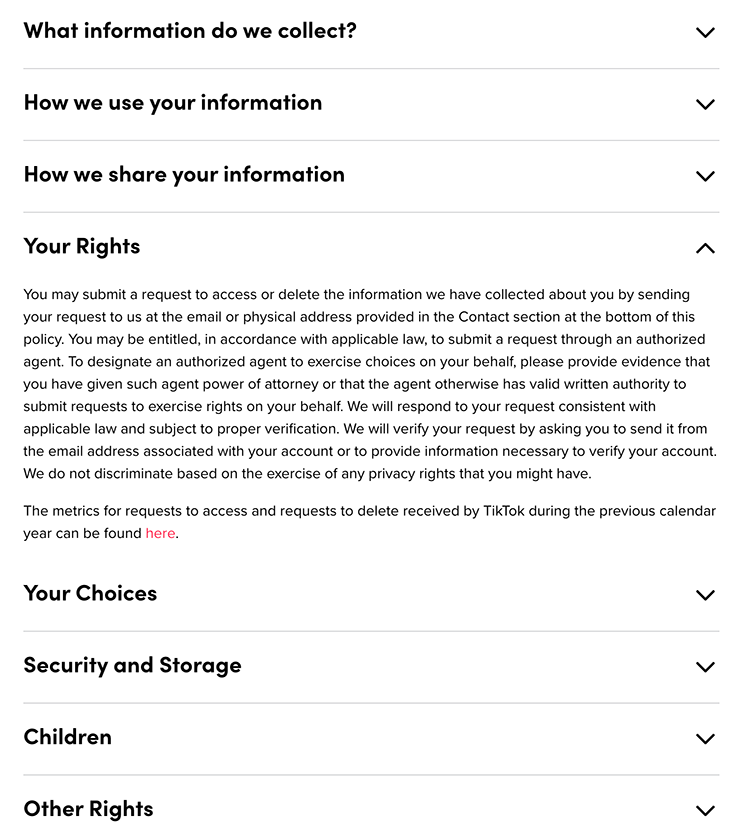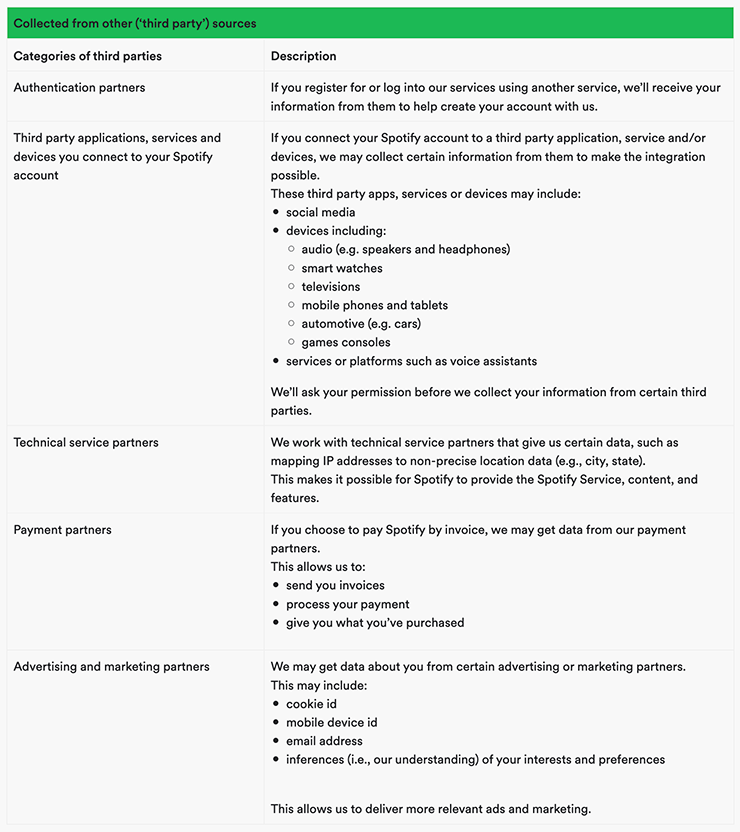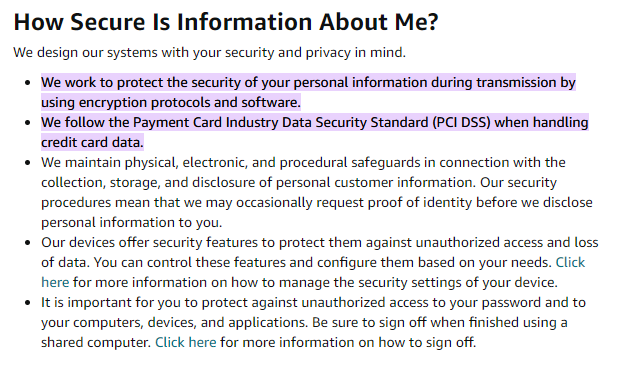
These days, creating an app is incredibly easy — with just a few taps of your phone, you can use intuitive app builders to launch your app in minutes.
However, your app needs to comply with various mobile app legal requirements. Therefore, you need to be aware of laws from all over the world that impact your app.
Keep reading to learn about mobile app laws that may impact you and how. While this article doesn’t cover every legal requirement for every industry, it will cover most of the app laws that every small-business owner should know before creating an app.
Key Takeaways
If you’re building an app, you need to be aware of the following mobile app laws, regulations, and best practices:
Here’s a list of mobile app laws and regulations that may impact your company. Note that some regulations, such as the General Data Protection Regulation (GDPR), apply to companies worldwide as long as they meet certain criteria.
The CCPA applies to any for-profit company that does business in California — regardless of where it’s based — if it meets any of the following criteria:
When creating your app, you need to make sure it complies with relevant legal requirements, including the following:
Data privacy laws like the GDPR and CPRA have many data privacy and collection requirements.
Many laws that impact apps require you to create a privacy policy to inform users about their privacy rights and how you collect, use, and store their data.
Although requirements for privacy policies may vary depending on what laws apply to your mobile app, most require you to do the following:
Explain what personal information you collect from users
Typical examples include:
Define how you share and use data, including whether you sell data
For example, this is how WhatsApp defines the way it uses data:

Describe how users can control their data
Be as detailed as possible when writing out this part. As an example, here’s how TikTok organized this section of its privacy policy:

Disclose whether you use third-party services
The GDPR and CCPA define third parties as individuals or companies other than the subject that you have authorized to process personal data. Examples include cookies and social media features like Facebook’s Like button.
This is how Spotify discloses its third-party services:

Inform app users on whether and how they’re being tracked
If your app uses cookies or other tracking mechanisms to analyze user activity, you need to disclose:
Our free mobile app privacy policy template includes all of these clauses for your convenience.
If the GDPR applies to you, you also need to:
If the CCPA applies to you, you need to include all of the elements above and provide a way for consumers to opt out of having you sell their private data.
Once a consumer has made that request, you must wait a minimum of 12 months before asking them to opt back into letting you sell their personal information.
“Do Not Share My Personal Information” Link
Additionally, if the CCPA applies to you, you need to prominently and explicitly display a “Do Not Share My Personal Information” link somewhere in your app and include it in your privacy policy. This link must lead to a form or webpage where users can opt out of the sale of their personal information.
If your app markets or could potentially market to EU consumers, you must follow the GDPR and the EU Cookie Law’s consent and transparency standards. These regulations require users to give explicit and informed consent before your app can process their data.
However, the CCPA doesn’t require a user to give proactive or affirmative consent for data collection. This difference in legislation means your app can collect, store, and use cookie data immediately without user confirmation, as long as both of the following are true:
You must also give them an explicit and easy way to opt out of data collection at any point.
Once the CPRA comes into effect, you will have to take extra steps to safeguard data from minors under the age of 16. You must obtain active consent from these users before selling or sharing their personal information. COPPA also requires you to obtain active consent from users under the age of 13.
According to the Federal Trade Commission (FTC) Fair Information Practice Principles, you need to define your app’s security measures for protecting consumers’ data and deleting old data.
These measures are intended to lower the risk of cybersecurity issues such as data breaches and hacks.
Your security measures will depend on how much data you collect and how sensitive this data is.
For instance, Amazon explains that it protects users’ personal information using encryption software and protocols. It also follows the Payment Card Industry Data Security Standard (PCI DSS) for handling credit card data:

The ADA requires apps to be accessible to everyone, including users with visual or hearing impairments. You must comply with the ADA if your business has 15 or more employees.
You can make your app accessible by:
In the same vein, Canada has provincial laws that require apps from private businesses to be accessible.
For instance, the Accessibility for Ontarians With Disabilities Act (AODA) requires apps from private businesses to be accessible. It requires all public sector organizations as well as nonprofit and private organizations with more than 50 employees to make their apps and digital content accessible to people with disabilities.
In Europe, the EU Web Accessibility Directive requires public sector organizations across the EU to ensure that their mobile apps are operable, understandable, robust, and perceivable.
If you operate an ecommerce app, you must employ security and safety measures to protect your users’ private information.
As such, you need to do the following:
Your app has several intellectual property rights, including:
In many jurisdictions, like the US and UK, copyright protection immediately vests in a work as long as it meets certain criteria. As such, you can take action against other apps, sites, and individuals who use your content without permission.
To prevent others from using and stealing your content, consider:
You should also remember to respect others’ intellectual property rights. As such, you should never reuse or copy someone else’s content unless you have explicit permission from them to do so.
Make sure that all of your app’s content is original. If you want to post or repost an image, copy, or any other material that someone else created, you need to:
Otherwise, your unauthorized and unattributed use of another app’s content will be flagged for copyright infringement or plagiarism.
If you want to use professionally produced content for your apps, such as videos, graphics, music, tables, and photos, ensure that you have the right content licensing for it. You must provide attribution as needed.
Your app also needs to follow anti-spam laws. Otherwise, malicious actors may use your app to send users spam.
Spam refers to irrelevant or unsolicited emails sent en masse to a list of people. Examples include unsolicited marketing emails, fraudulent messages, computer viruses, and scams.
In the US, the Controlling the Assault of Non-Solicited Pornography and Marketing Act (CAN-SPAM) gives recipients the right to opt out of unwanted emails.
In contrast, the GDPR has strict anti-spam app clauses that require you to ask recipients to opt into marketing messages before sending them anything, even if those users are already your customers.
Your app should also include disclaimers. These can be part of your terms and conditions, or they can be on their own page.
The most common app disclaimer is used to limit an app creator’s responsibility for actions users take based on the app’s content. Other disclaimers depend on your app and your industry. Here are some examples of what these disclaimers can do:
Disclosures are important from an ethical and legal perspective. The FTC requires you to inform users of conflicts of interest if you have an audience that relies on your expertise or advice.
Here are some situations in which you should have a disclosure page on your app:
Besides the mobile app legal requirements covered above, some industries must follow specific requirements. These include the following.
If your app deals with health information, you must comply with the Health Insurance Portability and Accountability Act of 1996 (HIPAA).
Specifically, you need to follow:
You also need to inform patients about their rights over their health care data.
If you’re a lawyer, you need to follow the American Bar Association’s Rules of Professional Conduct, which limit what attorneys can say on apps.
For example, you can’t:
Financial apps have unique requirements because they are more likely to be hacked by threat actors.
That’s why app laws like the Gramm-Leach-Bliley Act (GLBA) specifically require financial apps to establish appropriate standards for ensuring the confidentiality and security of their customers’ personal information, such as their:
Additionally, the Federal Financial Institutions Examination Council (FFIEC) suggests using encryption to mitigate the risk of alteration or disclosure of sensitive information.
If you’re a contractor or subcontractor, you should put your credentials on your app. Check your local licensing board to see if there are any requirements for displaying your contracting license ID on your app.
File-sharing apps may have strict requirements depending on your jurisdiction. For example, sharing files without the copyright holder’s consent is illegal in Germany. Even a single copyrighted file downloaded through a file-sharing app can trigger a fine of 1,000 euros or more.
The following elements aren’t legally required, but they can significantly improve the customer experience and make it easier for you to build a rapport with users.
You should create a robust about page that gives users a look into who you are and why they should trust you. A good about us page will make your app for transparent and provide information that users might want to know before trusting you.
Contact information, including social media accounts, is a vital part of your app. It allows users to reach out to you if they have any questions or concerns.
You should also include a terms of use page to establish broad guidelines for using your app.
Having a well-written terms of use page doesn’t just keep your app safe for everyone — it’s also the right thing to do. Your customers deserve to know when you can terminate their accounts and what they can and can’t do.
Here are some components you should always include:
Use our free mobile app terms and conditions template as a quick way to get started.
EULAs are legally binding contracts that require users to agree to their terms before those users can download and install your app.
Although they can be easily mistaken for terms-of-use agreements, EULAs are distinct. Instead of setting broad guidelines for users to follow, EULAs give app users the right to download, install, and access an app.
They also establish guidelines for how users should interact with the software specifically. For example, EULAs typically restrict users from:
Use our free EULA generator or EULA template as a quick way to get started.
If you have an ecommerce app, you should also consider adding a shipping policy, and a return & refund policy. Well-written policies will show that you care about your customers and whether they’re satisfied with your goods and services.
Shipping policies outline how and when your company ships products once users place an order through your app, while return and refund policies outline how users can return items and secure refunds, respectively.
Although creating an app is easier than ever, there’s more to app creation than just putting an app together. You also need to ensure that you comply with relevant state, federal, and international app laws.
You need to make sure that you know which mobile app legal requirements apply to you and what they require you to do. Creating a fully compliant app will decrease your cybersecurity risks, boost customers’ trust and loyalty, and increase your return on investment.
It’s important to note that compliance with the law isn’t just about avoiding liability and lowering legal risks — it’s also the right thing to do. A compliant app will show your customers that you’re an ethical and reliable business that prioritizes their safety above your profits.

Masha is an Information Security and Data Privacy Specialist and a Certified Data Protection Officer. She has been a Data Protection Officer for the past six years, helping small and medium-sized enterprises achieve legal compliance. She has also been a privacy compliance mentor to many international business accelerators. She specializes in implementing, monitoring, and auditing business compliance with privacy regulations (HIPAA, PIPEDA, ePrivacy Directive, GDPR, CCPA, POPIA, LGPD). Masha studied Law at Belgrade University, and she passed the Bar examination in 2016. More about the author